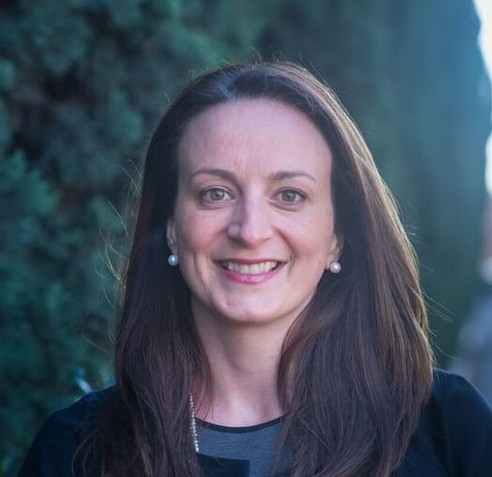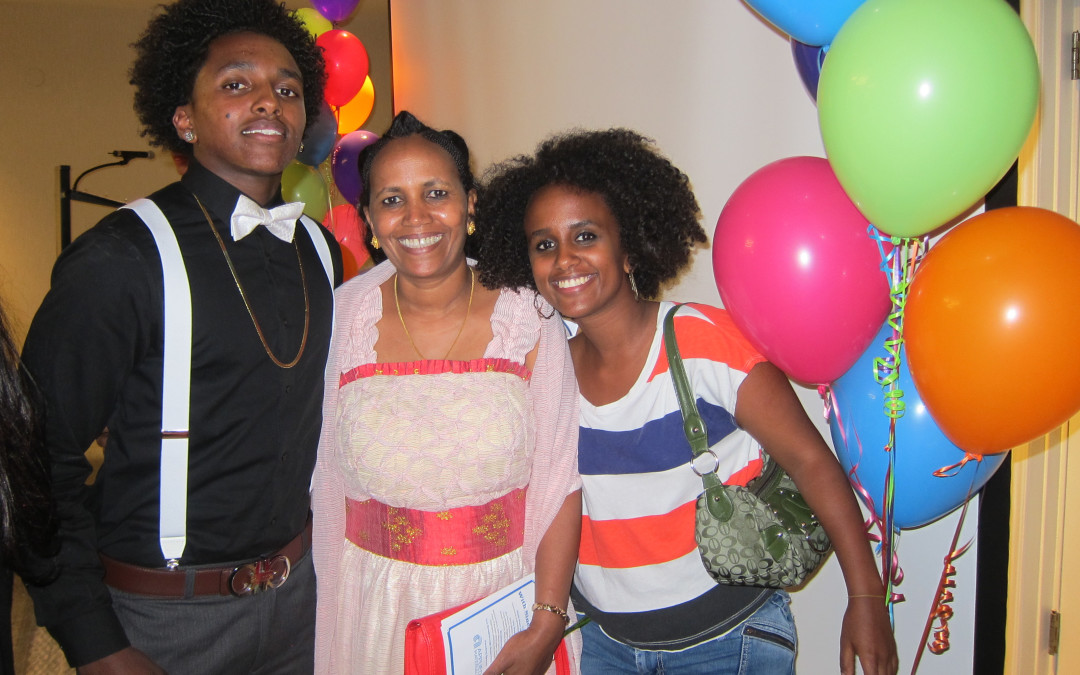(Photo: Thanks to Breakthrough Silicon Valley, Nahom Zeratsion (left) got a scholarship for Bellarmine College Preparatory and will be attending San Jose State University this Fall)
In Silicon Valley, it’s easy to focus on the bright stars of tech and innovation. But what about those people who don’t feature on the home page of TechCrunch and can barely afford their rent? Today, Silicon Valley’s income inequality is jaw-dropping; average incomes of the top 5% of households are about 30 times higher than the average incomes of the bottom 20% ($500,000 vs $15,000). One startup has a long-term vision and is successfully breaking the cycle of poverty in some Silicon Valley neighborhoods by helping low income students get a college education.
Here are the stats from Breakthrough Silicon Valley:
80% of students are first in their family to attend college
62% of students live in gang-impacted neighborhoods
And yet, 96% of these students get into 4-year colleges, 4% into community colleges.
Earlier this year, I sat down with Melissa Johns, the Executive Director of Breakthrough Silicon Valley to find out how she and her team achieve such impressive stats, and how their program has a ripple effect on the wider community. Although the majority of the nonprofit’s revenue comes from the tech community, its limited budget means the team can only reach a few hundred students every year. With a proven and successful platform like this, imagine what could be done if tech juggernauts like Google, Apple and Cisco stepped up to help scale this program?
The BBC World Service was curious to explore this less glamorous – and yet inspiring – side of Silicon Valley and aired my interview on Business Matters.
Here’s the podcast
And here’s a transcript of our conversation (edited for length and clarity):
The BBC’s Roger Hearing: Alison, you’ve been looking at the people who work in Silicon Valley…and income inequality in the area?
Alison van Diggelen: Yes, there’s a growing gap between the rich and the poor in Silicon Valley. It’s quite stunning. Last week, I interviewed the Executive Director of Breakthrough Silicon Valley. It’s a nonprofit that’s helping low income students break out of poverty by getting a college education. That’s the ticket to success in Silicon Valley and beyond. Melissa Johns runs the six year program: tutoring, mentoring and college counseling and her team has impressive statistics (see above). I talked to Melissa about the many shortcomings of California’s public education system. She told me that on average there’s only one college counselor for every 700 students in California’s public high schools. That’s one thing she would like to fix.
Melissa Johns: I don’t know how we’re going to do the things we need to – to fill the STEM pipeline of future engineers or Silicon Valley is going to crumble. We need to find more women for leadership positions in our Fortune 500 companies. How are we going to achieve all that when the vast majority of our population is left behind because they’re attending schools that are under resourced and they have college dreams with no real connection to a college counselor who can help them walk through the very complex process?
Roger Hearing: But Alison, I gather that there’s a huge number of dropouts there in Silicon Valley high schools?
Alison van Diggelen: Yes, there’s a lot of talk here about the dropout crisis. East San Jose, in the heart of Silicon Valley has dropout rates as high as 30% in some communities and the majority of that are students who complete high school but don’t meet the minimum level of credits to graduate. But the good news is: there are a number of nonprofits working to have an impact, and these Breakthrough students are having an enormous impact on their communities. It’s like the multiplier effect in economics. Here’s Melissa Johns (below) explaining The Ripple Effect.
 Melissa Johns: When I look at the tremendous obstacles a student has to overcome to become the first in their family to graduate from college. There’s a huge amount of culture shock… but also there’s a lot of fighting that impostor syndrome…I’m so impressed by students who can fight all of that inner talk that tells them they can’t do it and persevere. So they can then have an economic future that they can be proud of and excited about because they get to choose a career and not just a job. They start a positive ripple effect for any younger siblings, any neighbors, any cousins, who look at what their achievement is and say: well if she did it, I can do it too! The expectations that change in a family, in a community are amazingly impressive.
Melissa Johns: When I look at the tremendous obstacles a student has to overcome to become the first in their family to graduate from college. There’s a huge amount of culture shock… but also there’s a lot of fighting that impostor syndrome…I’m so impressed by students who can fight all of that inner talk that tells them they can’t do it and persevere. So they can then have an economic future that they can be proud of and excited about because they get to choose a career and not just a job. They start a positive ripple effect for any younger siblings, any neighbors, any cousins, who look at what their achievement is and say: well if she did it, I can do it too! The expectations that change in a family, in a community are amazingly impressive.
Roger Hearing: Alison, what’s interesting about this is the area we’re talking about, Silicon Valley: massive high tech businesses. Are they willing, interested in employing people from these kind of communities and trying to take advantage of the education they’ve got?
Keep listening to hear more about:
Diversity in Silicon Valley
How the Singapore education system compares
The challenge of social mobility: How Breakthrough kids are choosing careers, not just jobs, and breaking out of the cycle of poverty.
Find out more about Silicon Valley nonprofits bridging the college gap:
City Year (uses Americorps, a government funded program to work in schools),
College Track (largely funded by Laurene Powell, the widow of Steve Jobs)
KIPP (a national charter school network)
Downtown College Prep school in San Jose, and in Palo Alto
Broadway High School – continuation school for at risk youth – with vocational focus
SV Community Foundation – assembles donations from many sources, gives ~$2M annually to education programs/schools.
Read more from Fresh Dialogues Inspiring Women Series
Please Note: Links to all my BBC contributions on Fresh Dialogues are to my personal portfolio of audio and text. Copyright of my BBC broadcast works remain with the BBC.




